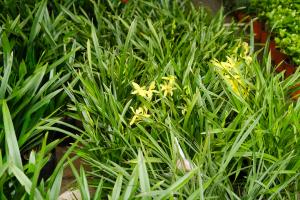Can Vinegar Kill Plant Roots?
Vinegar is a common household item used for cooking, cleaning, and even gardening. It is known to be a natural weed killer, but the question is, can vinegar kill plant roots?
Before we dive into the answer, it's important to understand why someone would want to kill plant roots in the first place. There are several reasons, such as removing invasive or unwanted plants, preventing trees from damaging infrastructure or property, or even to make room for new plantings.
How Does Vinegar Work as a Weed Killer?
Vinegar is an acidic substance that can burn and dry out the leaves, stems, and the above-ground parts of many plants. When used as a weed killer, vinegar is typically mixed with water and sometimes with other ingredients such as salt or dish soap. The solution is then sprayed directly onto the weeds, which will eventually die off from lack of nutrients.
However, while vinegar can kill the above-ground parts of plants, it is less effective against their roots. This is because vinegar is a contact herbicide, meaning it only affects the parts of the plant it comes into direct contact with. Therefore, vinegar may not be the best choice for killing plant roots, especially if they are deep in the soil.
Will Vinegar Harm Other Plants?
While vinegar may be an effective weed killer, it can also harm other plants if not used with caution. This is because vinegar is non-selective, meaning it can kill any plant it comes into contact with, including those that you may not want to kill.
Furthermore, vinegar can also lower the pH level of the soil, making it more acidic over time. This can be harmful to plants that prefer a neutral or alkaline soil environment, such as vegetables and fruits.
Alternatives to Vinegar for Killing Plant Roots
If you need to kill plant roots, there are several alternatives to vinegar that may be more effective. One option is to cut the plant down to the ground and then apply a systemic herbicide, which will be absorbed by the plant and eventually kill the root. Another option is to physically remove the root by digging it out of the soil.
It's important to note that both of these methods may require multiple applications or attempts to fully kill the root, and they may also require more time and effort than using a contact herbicide like vinegar.
In Conclusion
While vinegar can be an effective weed killer, it may not be the best choice for killing plant roots. Using vinegar can also harm other plants and lower the pH level of the soil. When attempting to kill plant roots, it's important to consider alternative methods such as systemic herbicides or physical removal.

 how many times do yo...
how many times do yo... how many planted tre...
how many planted tre... how many pine trees ...
how many pine trees ... how many pecan trees...
how many pecan trees... how many plants comp...
how many plants comp... how many plants can ...
how many plants can ... how many plants and ...
how many plants and ... how many pepper plan...
how many pepper plan...































